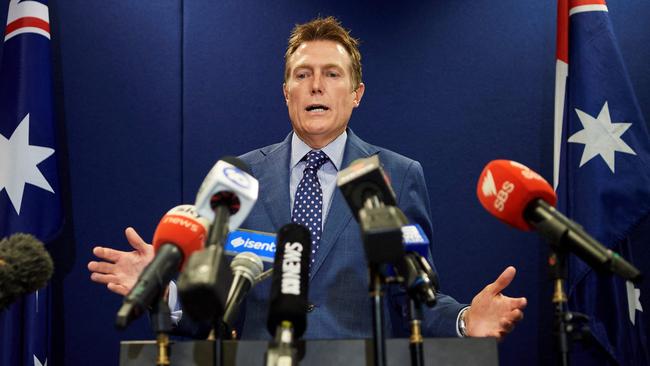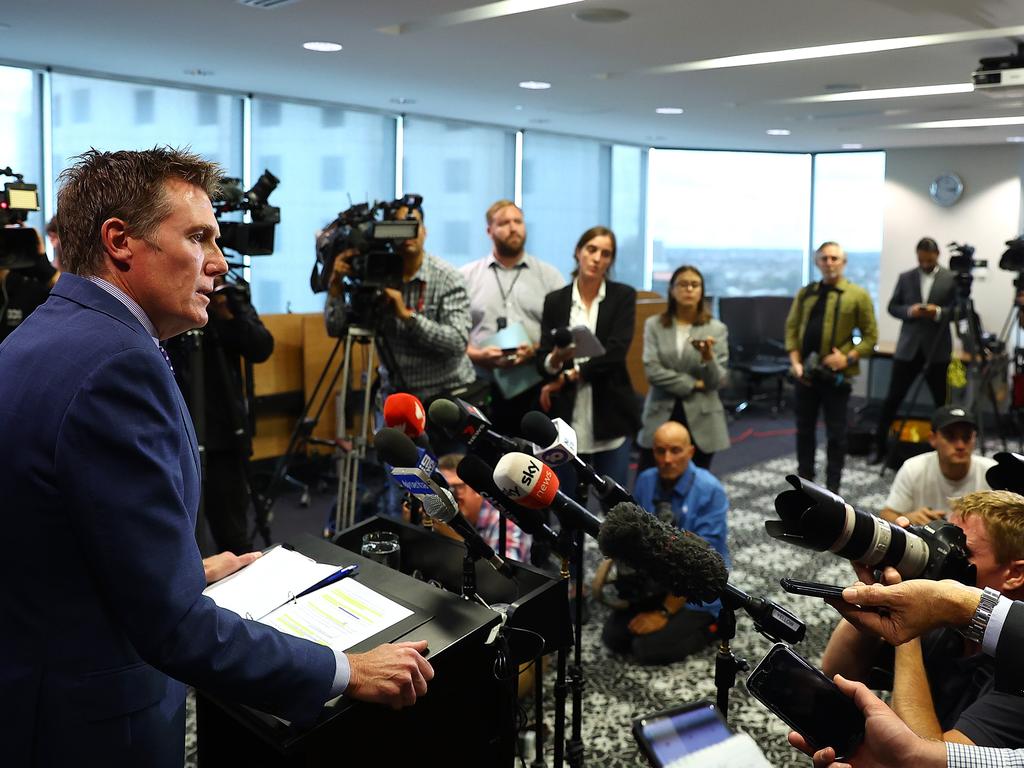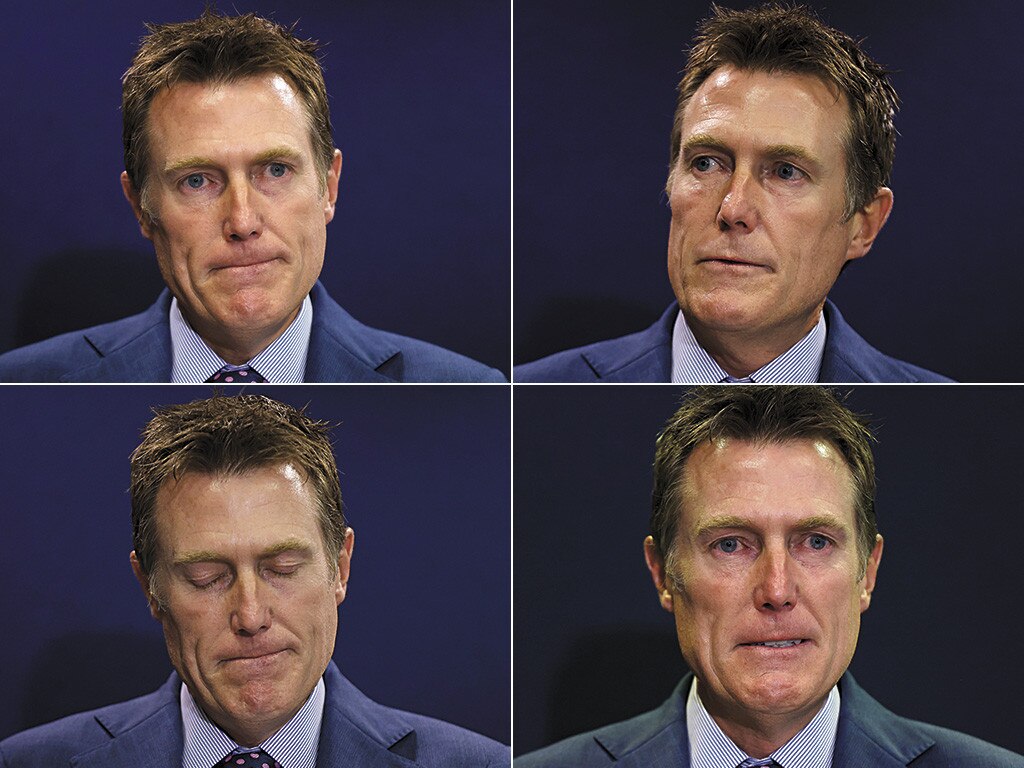Grotesque political saga ignores principles of justice

It is worth noting that the woman, before she died, did not sign the copious accounts of the alleged matter, as Jamie Walker reports. Her recollections were starkly at odds with Mr Porter’s. On Wednesday, he said he and the woman “to the best of my recollection” had not had any contact since January 1988. Her statement claims they had dinner in 1994 and he propositioned her. Either he is a liar or she was a liar, a fantasist or both. For many people, it will not engender confidence that the dubious “repressed memory” process played a role in her recollections. And according to the anonymous letter sent to politicians a fortnight ago, the alleged victim’s parents worried about her reliability as a witness as “she may have confected or embellished the allegations due to her mental illness”.
Her parents, it was reported this week, would support “any inquiry” into the circumstances leading to her death. On Friday, Scott Morrison said he also would welcome an inquest by the South Australian Coroner into the woman’s death. That decision rests with the coroner. If it proceeded, an inquest might provide a circuit-breaker and bring some closure to the woman’s family about the circumstances of her death. But it could not resolve the issue of Mr Porter’s innocence or guilt.
The Prime Minister is correct to resist demands to instigate an inquiry and to stand Mr Porter down. Doing so would create a dangerous precedent under which a senior public figure could not retain office after such an allegation without surviving the criminal justice process and a politically authorised inquiry. Anthony Albanese has made a serious mistake in calling for such a probe, which would throw established political and legal processes to the winds and change the tenets of our politics and governance.
It reveals a desperate ALP, Paul Kelly writes in Inquirer. The opposition is prepared to put its quest to damage the Morrison government ahead of core principles of our governance: “To grasp how far we have come, can you imagine the outcry had the Abbott government in 2014 — on ALP leader Bill Shorten revealing that criminal proceedings were not being taken against him — actually established a second executive government inquiry to test whether Shorten was a ‘fit and proper’ person for high office. The outcry would have been deafening.”
The destruction of Mr Porter’s reputation and of his career on the basis of untested and unsubstantiated allegations would be a gross injustice. As Chris Kenny argues in Inquirer on Saturday, “journalists, activists and, remarkably, politicians are demanding that the police findings be placed aside because they do not like the outcome … they demand an extrajudicial inquiry because they are disappointed by the outcome of the criminal justice system”. An extrajudicial inquiry could not establish the truth but would reinforce the smear against Mr Porter. In the absence of witnesses, the minister knows he could not prove his innocence. “You are talking here about a civil determination of a criminal allegation on presumably the standards of balance of probabilities where I would be asked to disprove something that just didn’t happen 33 years ago,” Mr Porter said this week. “So, if that happens, I couldn’t succeed to disapprove something that didn’t happen.”
The issue needs to be considered soberly, in light of well-established principles of justice. It has been conflated, unfortunately, with the turmoil and anger surrounding the alleged rape of former Liberal staff member Brittany Higgins and serious concerns about the workplace culture of Parliament House. The investigation into that culture and the process of handling allegations of sexual harassment and assault, to be led by Sex Discrimination Commissioner Kate Jenkins, is timely and important. Parliament should reflect best practice, as Special Minister of State Simon Birmingham said on Friday. Too often, decency and responsibility have been missing in the Canberra bubble; the culture needs to change. Sexual harassment, assault and bullying must never be tolerated.
But those evils will not be prevented by abandoning basic principles of the rule of law. Any notion that doing so would further the interests of women or protect them from predatory attacks is false. It must be rejected.






Senate crossbencher Rex Patrick’s view that the Morrison government has “no chance” of getting its industrial relations bill passed in the absence of Attorney-General and Industrial Relations Minister Christian Porter is the latest example of how the rape allegation against Mr Porter is being hijacked as a potent political weapon. Senator Patrick has joined the cacophony of Labor and Green politicians, journalists and lawyers baying for an inquiry into the claim Mr Porter raped a 16-year-old schoolgirl when he was a 17-year-old schoolboy. The crisis is engulfing politics and the process of government, and threatens to damage the nation amid recovery from COVID-19. Frenzied demands for an inquiry serve no useful purpose. Any inquiry would have no legal status to convict Mr Porter or to clear his name. The absence of the central witness, who withdrew her complaint to NSW police shortly before she reportedly committed suicide, left police “insufficient admissible evidence” to proceed. Any inquiry would confront the same obstacle.